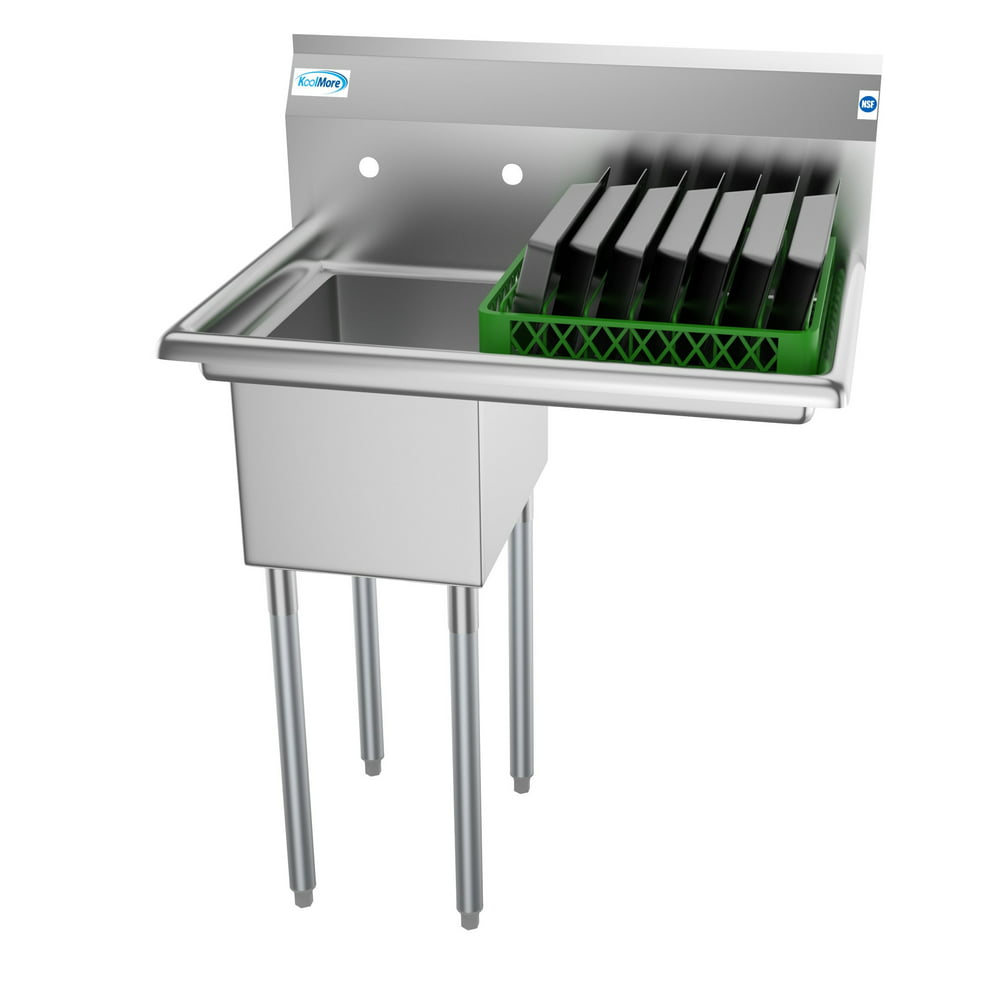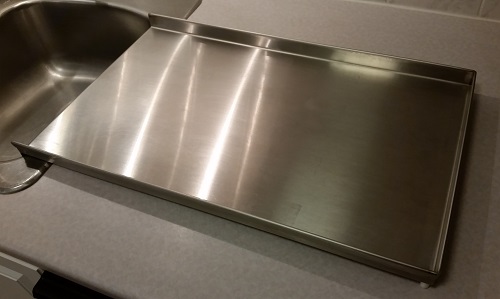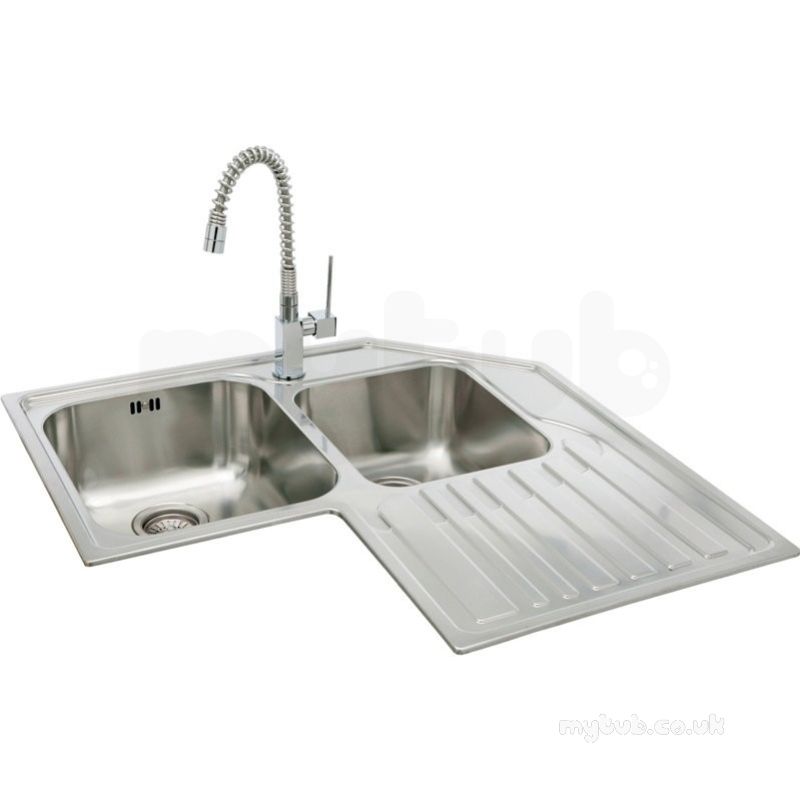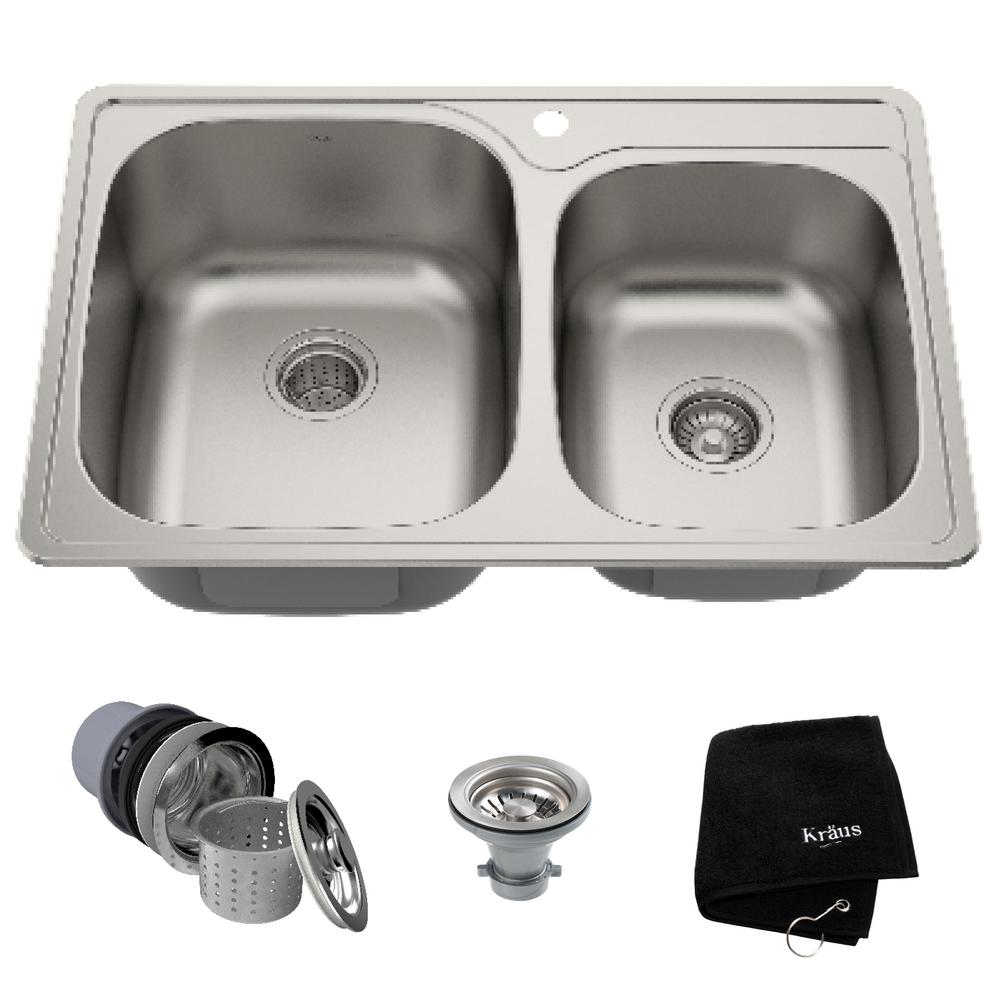Choosing the Best for Your Culinary Needs
Commercial grade kitchen sinks are a cornerstone of any professional kitchen, providing the durability, functionality, and efficiency required to handle high volumes of food preparation and cleanup. Selecting the right sink involves understanding the types available, the materials used, installation methods, and maintenance practices. We will talk about these aspects, offering a comprehensive guide to help you make an informed decision.
Types of Commercial Grade Kitchen Sinks
Commercial kitchen sinks come in various configurations, each designed to meet specific needs in a busy culinary environment. The most common types include compartment sinks, prep sinks, bar sinks, and pot sinks, each serving a distinct purpose.
Compartment Sinks
Compartment sinks, or multi-basin sinks, are designed with multiple sections to facilitate different food preparation and cleaning stages. These sinks typically come with two, three, or four compartments, allowing for washing, rinsing, sanitizing, and soaking in separate areas. This setup is instrumental in maintaining hygiene standards and preventing cross-contamination in commercial kitchens.
Prep Sinks
Prep sinks are smaller sinks designated for food preparation tasks. They are usually installed in convenient locations within the kitchen, such as near cutting boards or cooking stations. These sinks are ideal for washing vegetables, fruits, and other ingredients, ensuring that the primary washing sinks remain free for dishwashing and other cleaning tasks.

Bar Sinks
Bar sinks, or wet bar sinks, are compact sinks used primarily in bars and beverage preparation areas. These sinks are designed to handle washing glasses, mixing utensils, and small barware. Their smaller size and specific placement make them highly functional in spaces where beverages are prepared and served.
Pot Sinks
Pot sinks, or utility sinks, are large, deep sinks designed to accommodate the washing of oversized pots, pans, and other large kitchen equipment. These sinks are essential in commercial kitchens where large volumes of cooking are done, as they provide ample space for thoroughly cleaning bulky items that cannot fit in standard sinks or dishwashers.

Materials for Commercial Grade Kitchen Sinks
The material of a commercial kitchen sink significantly impacts its durability, maintenance, and overall performance. Stainless steel, cast iron, and composites are among the most common materials, each offering unique advantages.
Stainless Steel
Stainless steel is the most popular material for commercial kitchen sinks due to its durability, resistance to corrosion, and ease of cleaning. It can withstand high temperatures and heavy use, making it ideal for the demanding environment of a commercial kitchen. Additionally, stainless steel sinks are available in various gauges, with lower gauge numbers indicating thicker and more durable metal.
Cast Iron
Cast iron sinks are known for their strength and longevity. These sinks are coated with a layer of enamel, providing a smooth, non-porous surface that resists stains and is easy to clean. Cast iron sinks are incredibly durable but also heavy and require sturdy support during installation. They are best suited for kitchens where a more traditional aesthetic is desired, combined with robust performance.
Composites
Composite sinks are made from a mixture of materials, such as granite or quartz combined with resin. These sinks offer the look of natural stone with enhanced durability and resistance to scratches and stains. Composite sinks are available in a variety of colors and finishes, making them a versatile option for different kitchen designs. They also provide good sound absorption, reducing noise during use.
Copper
Copper sinks add a unique and aesthetically pleasing touch to commercial kitchens. Known for their antimicrobial properties, copper sinks can naturally kill bacteria, making them a hygienic option. However, copper is softer than other materials and can develop a patina over time, which may be desirable or undesirable depending on personal preference. Copper sinks require regular maintenance to keep their appearance and functionality intact.

Installation Methods for Commercial Grade Kitchen Sinks
The installation method of a commercial kitchen sink affects not only its functionality but also the overall workflow and ergonomics of the kitchen. There are several common installation methods, each suitable for different kitchen layouts and uses.
Drop-In Sinks
Drop-in sinks, also known as top-mount or self-rimming sinks, are installed by dropping the sink into a hole cut out of the countertop. The rim of the sink rests on the countertop, securing it in place. This method is straightforward and can be done without major modifications to existing countertops. However, the rim can create a barrier that makes cleaning the countertop more challenging.
Undermount Sinks
Undermount sinks are installed beneath the countertop, creating a seamless look that makes it easier to clean the surrounding area. This method is particularly popular in commercial kitchens where hygiene and ease of cleaning are paramount. Undermount sinks require precise installation and sturdy support, as they do not have a rim to hold them in place.
Integrated Sinks
Integrated sinks are built into the countertop material itself, often made from the same material for a seamless appearance. These sinks offer the ultimate in easy cleaning and a sleek, modern look. Integrated sinks are typically found in custom or high-end commercial kitchen installations. They require professional installation and are usually more expensive than other types.
Wall-Mounted Sinks
Wall-mounted sinks are affixed directly to the wall, saving valuable floor and counter space. These sinks are commonly used in commercial kitchens with limited space or in areas where a dedicated washing station is needed. Wall-mounted sinks must be securely attached to the wall studs to support their weight and the heavy use they will endure.

Maintenance and Care for Commercial Grade Kitchen Sinks
Proper maintenance and care are essential to ensure the longevity and performance of commercial-grade kitchen sinks. Regular cleaning, preventative measures, and periodic inspections are key aspects of maintaining these vital kitchen components.
Regular Cleaning
Regular cleaning of commercial kitchen sinks helps prevent the build-up of grime, stains, and bacteria. Use a mild detergent and warm water for daily cleaning, and avoid abrasive cleaners that can scratch the surface. For stainless steel sinks, using a soft cloth or sponge is recommended to maintain the sink’s finish. For other materials, follow the manufacturer’s cleaning guidelines to avoid damage.
Preventative Measures
Implementing preventative measures can significantly extend the life of a commercial kitchen sink. Use sink mats or grids to protect the surface from scratches and dents caused by heavy pots and pans. Additionally, avoid pouring harsh chemicals or hot oil directly into the sink, as these can damage the sink’s material and finish.
Periodic Inspections
Regularly inspecting the sink for signs of wear and tear can help catch problems early before they become major issues. Look for signs of rust, corrosion, leaks, or other damage. Address any issues promptly to prevent further deterioration. For stainless steel sinks, polishing them periodically can help maintain their appearance and resistance to stains.
Professional Maintenance
In some cases, professional maintenance may be required to keep commercial kitchen sinks in optimal condition. This can include re-caulking around the edges of undermount sinks, resealing composite or cast iron sinks, or repairing any structural damage. Professional services ensure that the sink is properly maintained according to industry standards, prolonging its usability and efficiency.

Common Mistakes to Avoid
Choosing the Wrong Material Selecting the wrong material for your commercial kitchen sink can lead to issues such as corrosion, staining, or inadequate durability. Always consider the specific needs of your kitchen, including the volume and type of use, before choosing a material.
Improper Installation Incorrect installation can result in leaks, poor drainage, and instability. Ensure that the sink is installed by a professional or follows manufacturer guidelines meticulously. Pay special attention to securing the undermount and wall-mounted sinks properly.
Neglecting Maintenance Failing to maintain your commercial kitchen sink can shorten its lifespan and compromise hygiene. Regular cleaning, inspections, and preventative measures are essential to keep the sink in top condition.
Overlooking Ergonomics Ignoring the ergonomic layout of the kitchen when installing sinks can lead to inefficient workflows and increased strain on workers. Place sinks in convenient locations that align with the kitchen’s overall design and workflow to enhance efficiency and reduce fatigue.

What factors should I consider when choosing a commercial kitchen sink?
When choosing a commercial kitchen sink, consider the material, size, configuration, and installation method. Material affects durability and maintenance; stainless steel is a popular choice due to its resistance to corrosion and ease of cleaning. Size and configuration should match your kitchen’s needs, with options like compartment sinks, prep sinks, and pot sinks available. The installation method, whether drop-in, undermount, integrated, or wall-mounted, impacts the ease of cleaning and space utilization. Evaluate these factors based on your kitchen’s volume and type of use to ensure you select a sink that meets your operational requirements.
How often should I clean and maintain my commercial kitchen sink?
Daily cleaning with a mild detergent and warm water is recommended for all commercial kitchen sinks to prevent build-up of grime and bacteria. Depending on usage, deeper cleaning and maintenance tasks, such as polishing stainless steel or resealing cast iron and composite sinks, should be done monthly or as needed. Regular inspections for signs of wear and damage are also essential to address issues promptly and maintain the sink’s functionality and hygiene.
Can I install a commercial kitchen sink myself, or should I hire a professional?
While some types of commercial kitchen sinks, like drop-in sinks, may be manageable for skilled DIY enthusiasts, it is generally recommended to hire a professional for installation. Professional installers ensure that the sink is properly secured, preventing leaks and ensuring durability. This is particularly important for undermount and wall-mounted sinks, which require precise installation to support their weight and functionality. Hiring a professional also ensures compliance with any local health and safety regulations.
What are the benefits of stainless steel sinks in commercial kitchens?
Stainless steel sinks offer several benefits in commercial kitchens, including durability, resistance to corrosion and staining, and ease of cleaning. They can withstand high temperatures and heavy use, making them ideal for the demanding environment of a professional kitchen. Stainless steel is also hygienic, as it does not harbor bacteria, and its sleek appearance fits well with modern kitchen designs. The variety of gauges available allows for customization based on the specific needs and budget of the kitchen.
How do I prevent scratches and dents in my commercial kitchen sink?
To prevent scratches and dents, use sink mats or grids to protect the surface from heavy pots and pans. Avoid using abrasive cleaners or scouring pads, which can damage the finish. Instead, use a soft cloth or sponge with a mild detergent. Do not drop heavy items into the sink, and be cautious with sharp utensils that can cause scratches. Regularly polish stainless steel sinks to maintain their protective layer and appearance. For composite or cast iron sinks, follow the manufacturer’s guidelines for care and maintenance to avoid damage.
Stainless Steel Drainboard

Commercial Kitchen Sinks (3 Compartments)

Commercial Industrial Kitchen Design Photo Gallery

Lavella Corner Kitchen Sink With Right Hand Double Bowl And Drainer : Carron

ANSI Certified – Kitchen Sinks – Kitchen – The Home Depot

Related Posts:
- Kitchen Sink Cutout Dimensions
- How To Clean Pipes Under Kitchen Sink
- Roma Kitchen Sinks
- Kitchen Sink Unit With Drawers
- Glacier Bay Kitchen Sink Installation Instructions
- Sink Small Kitchen
- Kohler Kitchen Sink Drain Stopper
- Putting In A Kitchen Sink
- Unclog Kitchen Sink Without Plunger
- How To Clean A Smelly Kitchen Sink Drain